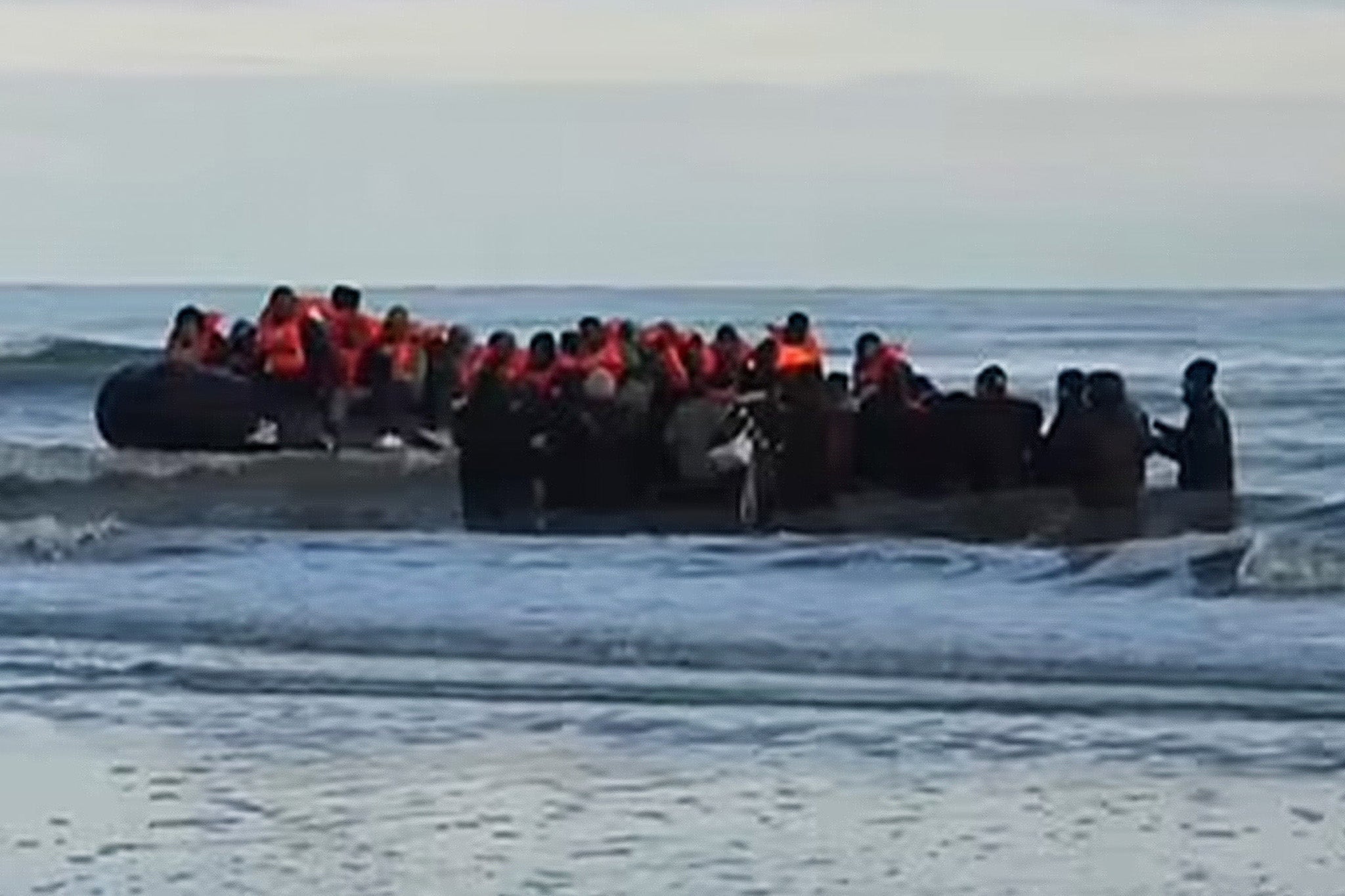How many migrants have died trying to cross English Channel after five lives are lost in one day
Five migrants, including a seven-year-old girl, were killed when their dinghy got into trouble off the coast of France as they attempted the English Channel crossing on Tuesday morning

More than 200 migrants have died trying to cross the English Channel over the past decade, the latest figures show, as Prime Minister Rishi Sunak pushes forward with his Rwanda bill in a bid to stop the attempts.
UN agency The International Organisation for Migration records data on the number of deaths using a mix of official and media reports going back to the start of 2014 - and so it is likely there are more deaths unreported during the period.
The figures show there were 240 deaths, with 14 so far in 2024, which include the loss of five people including a seven-year-old girl off the coast of Wimereux on Tuesday morning.
Home Office figures also show there have been 6,667 migrants detected crossing the English Channel up to 23 April this year, including 402 on Tuesday.
Mr Sunak described the latest deaths as “tragic”, but said they underscored the need for his Safety of Rwanda Bill, which will see asylum seekers sent to the east African country from July.
The move is aimed at discouraging people from trying to reach the UK by crossing the English Channel in small boats.
The number of migrants crossing the English Channel
Figures from the Home Office reveal there were 6,667 migrants were detected crossing to the UK up to 23 April this year. That figure is 20 per cent higher than the 5,546 migrants picked up by the same point in 2023.
It also comes just below the 6,691 in 2022, and more than three times as high as the 1,717 in 2021.
The figures illustrate an increased trend in migrants attempting to reach British shores on small boats since 2018, which has hampered Mr Sunak’s ‘stop the boats’ promise.
Mr Sunak has said the Rwanda Bill, which will see flights deporting asylum seekers in 10-12 weeks, will bring down the numbers.
Speaking about Tuesday’s deaths, he said: “This is what tragically happens when they [criminal gangs] push people out to sea and that’s why, for matters of compassion more than anything else, we must actually break this business model and end this unfairness of people coming to our country illegally.”
However, others including former national security adviser Peter Ricketts said the bill will not make the “slightest difference to the number of desperate people risking their lives to get here”.
The number provided by the Home Office does not include migrants who arrive on small boats undetected.
Number of migrants deaths from English Channel crossing attempts
UN migration agency the International Organisation for Migration has recorded the highest number of deaths among migrants attempting the Channel crossing up to April from 2014.
The group’s Missing Migrants project counts up the number of deaths using a mix of official and media reports.
Up to 23 April, it recorded 14 deaths, including three children. That is the highest number in the same timeframe since records started in 2014.
Most of the dead were recorded as being from western Asia.
They included the deaths of five migrants who died after their boat capsized near the town of Wimereux, to the south of Calais, on 14 January, as well as the deaths of five others from the same town on Tuesday.
What the Home Office says
The Home Office said it is doing whatever is necessary to “end these perilous and fatal journeys”, but it said illegal migration was an international challenge and it was working with the French to prevent more crossings.
It said a package of measures agreed with France would help double the number of officers patrolling beaches.
A spokesperson said: “The unacceptable number of people who continue to cross the Channel demonstrates exactly why we must get flights to Rwanda off the ground as soon as possible.
“We continue to work closely with French police who are facing increasing violence and disruption on their beaches as they work tirelessly to prevent these dangerous, illegal and unnecessary journeys.
“We remain committed to building on the successes that saw arrivals drop by more than a third last year, including tougher legislation and agreements with international partners, in order to save lives and stop the boats.”
How migrants are attempting the crossing
Smuggling gangs are believed to be behind the majority of crossings with groups suspected of charging up to £1,000-a-head for people to board the inflatable dinghies.
Police in France attempt to stop the practice with the sale of dinghies reportedly banned in towns and officers on the look out for equipment linked to water crossings along the coast.
A report by the Global Initiative Against Transnational Organised Crime found the water crossing had become more favourable to smugglers in recent years after surveillance had been improved around the Channel Tunnel.
In a report released in February, it said human smuggling networks had commercialised the small-boat route, keeping prices competitive and launching persuasive recruitment campaigns in migrants’ countries of origin.
It said: “The migrant bears the overwhelming burden of risk – physical, psychological and legal. The boats are often overloaded with passengers to maximize profits, and structurally unsuited for such dangerous seas and capsize.”
Join our commenting forum
Join thought-provoking conversations, follow other Independent readers and see their replies
Comments
Bookmark popover
Removed from bookmarks